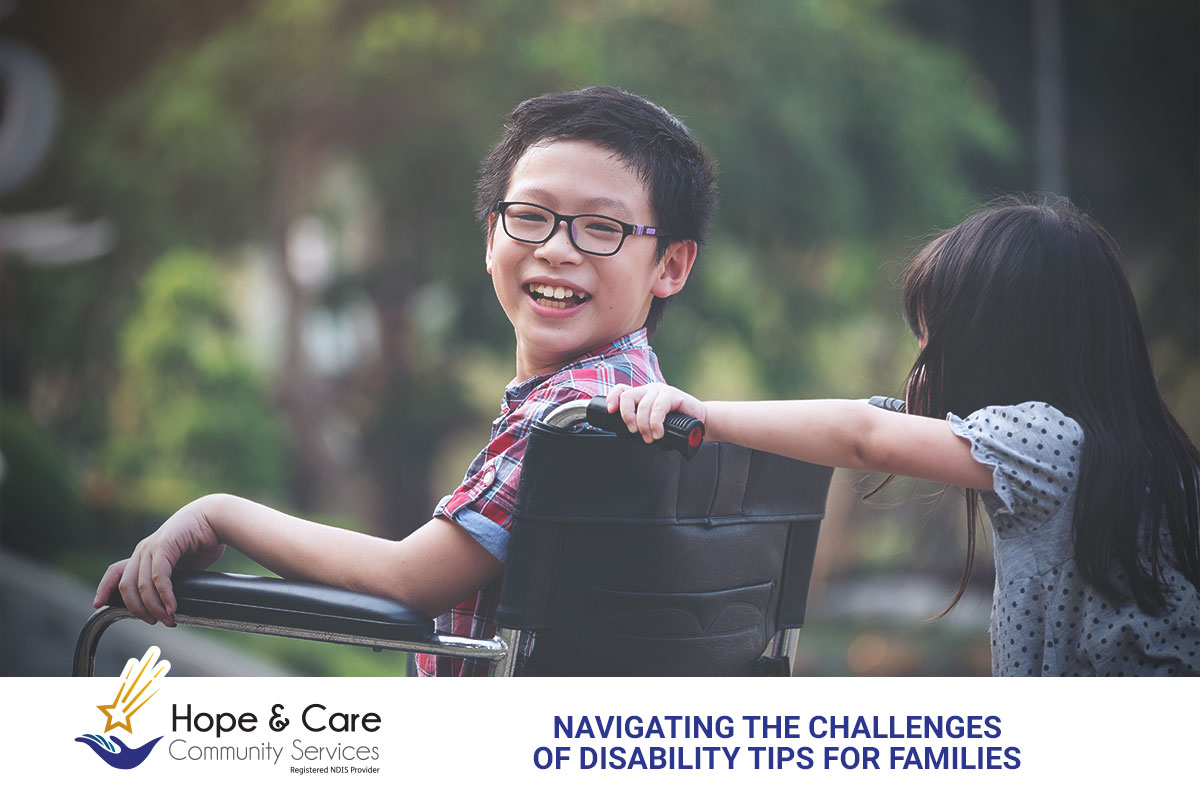
Raising a child with a disability or supporting a loved one with special needs can be both challenging and rewarding. Families often face unique obstacles that require careful navigation and constant adaptation. Understanding these challenges and having strategies in place can make a significant difference in managing the journey. This guide for families provides some tips to help families navigate the complexities of disability, fostering a supportive and empowering environment for everyone involved.
Understanding and Accepting the Diagnosis
One of the first and most crucial steps in navigating the challenges of disability is understanding and accepting the diagnosis. This process can be emotionally overwhelming, as it often brings a mix of emotions, including grief, confusion, and even guilt. It is essential to give yourself time to process these emotions and to seek accurate information about the diagnosis. A guide for families can help in understanding what the disability entails, including the potential challenges and the available supports, to help you set realistic expectations and plan effectively for the future.
Acceptance is a gradual process. Families should remember that it is okay to seek professional guidance, whether through counselling or support groups, to help cope with the emotional impact. Surrounding yourself with supportive individuals—whether family, friends, or professionals—can provide the encouragement needed to move forward positively.
Building a Strong Support Network
Having a reliable support network is vital for families navigating disability. This network can include family members, friends, healthcare providers, support groups, and community resources. A comprehensive guide for families emphasises the importance of these connections, which not only offer practical support, such as caregiving assistance or transportation, but also emotional support, helping you feel less isolated.
Support groups, both online and in-person, provide a platform to connect with other families experiencing similar challenges. Sharing experiences, advice, and resources can be incredibly empowering. Additionally, these groups often have valuable insights on navigating the NDIS and other support systems, helping you access the resources your family needs.
Advocating for Your Loved One
Advocacy is a powerful tool for families managing disability. As a parent or caregiver, you are often the best advocate for your loved one, ensuring they receive the care, education, and opportunities they deserve. This guide for families helps in understanding their rights and the available services, and being prepared to speak up when those rights are not being met.
Effective advocacy can take many forms, from participating in school meetings to ensure appropriate accommodations, to working with healthcare providers to tailor treatments and supports. It is also about teaching your loved one to advocate for themselves as much as possible, fostering independence and self-confidence. Remember, advocacy is a learning process. Do not hesitate to seek advice from advocacy organizations or professionals who can guide you through the more complex aspects of the system.
Creating a Stable and Supportive Home Environment
A stable and supportive home environment is crucial for the well-being of a person with a disability. This involves creating routines that provide structure and predictability, which can be particularly beneficial for children with developmental disabilities. A guide for families can offer strategies on how to create consistent daily routines that help reduce anxiety and create a sense of security.
Additionally, it is important to adapt your home environment to meet the specific needs of your loved one. This could involve physical modifications, such as installing ramps or modifying bathrooms, as well as creating spaces that promote relaxation and sensory regulation. Equally important is fostering an environment of understanding and empathy within the family. Siblings and other family members should be encouraged to express their feelings and ask questions about the disability. Open communication helps prevent misunderstandings and ensures that everyone feels included and supported.
Accessing Educational and Community Resources
Education is a critical component of supporting a loved one with a disability. It is essential to be informed about the educational rights of your child or family member, including access to individualized education programs (IEPs) and other accommodations. This guide for families advises working closely with teachers, school administrators, and special education professionals to help create a supportive educational plan that meets your loved one’s needs.
Beyond education, community resources play a significant role in enhancing quality of life. Many communities offer programs specifically designed for individuals with disabilities, such as recreational activities, social groups, and vocational training. These programs provide opportunities for socialization, skill development, and independence, which are all crucial for long-term well-being.
Prioritising Self-Care for Caregivers
Caring for a loved one with a disability can be physically and emotionally demanding, making it crucial for caregivers to prioritise their own well-being. Self-care is not a luxury; it is a necessity. A guide for families should include tips on taking time for yourself, which helps prevent burnout and ensures that you can continue to provide the best possible care.
Self-care can take many forms, from simple activities like taking a walk or reading a book, to more structured approaches like joining a support group or seeking counselling. Respite care services are also available to give caregivers a break, allowing them to recharge. Remember, asking for help is a sign of strength, not weakness. Utilize the support network you have built to share caregiving responsibilities, and do not hesitate to lean on professionals when needed.
Planning for the Future
Planning for the future is a crucial, though often daunting, aspect of managing disability. This involves not only addressing immediate needs but also preparing for long-term care, financial stability, and legal considerations. A comprehensive guide for families on this topic ensures that your loved one will be supported throughout their life, even when you are no longer able to provide care.
This planning can include setting up special needs trusts, securing appropriate guardianship arrangements, and exploring long-term care options. It is advisable to work with a financial advisor or legal professional who specializes in disability planning to ensure that all aspects are covered.
How Hope & Care Community Services Can Support Your Family
At Hope & Care Community Services, we understand the unique challenges families face when navigating disability. Our comprehensive support services are designed to empower families by providing the resources, guidance, and care needed to create a nurturing and supportive environment. From connecting you with local resources and support groups to offering tailored care plans, we are here to support your family every step of the way. Whether you need assistance with advocacy, accessing educational resources, or planning for the future, our experienced team is committed to helping you and your loved one thrive.
Finally, as Registered Provider, we understand the intricacies of the navigating services on your own. Unlock the full potential of your funding and provide the guidance you need to reach your goals. Feel free to Contact Us to explore how we can assist you on your journey. For instance, the NDIS is there to make a positive difference in your life, and we’re here to help!.
Want to learn more? Read other articles :
- Redefine Independence your own way – with HCCS
- Who’s Who: The Key Terms of Your NDIS Plan
- Foundational Supports: Building Blocks of NDIS Success
HCCS is a registered NDIS provider. Learn more about our services.
♥ We are available in Brisbane! – Our team is just a call away!
